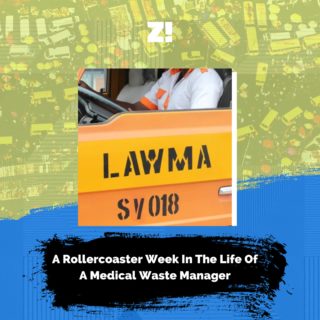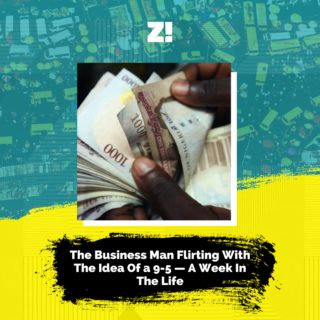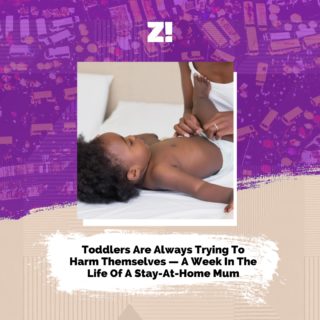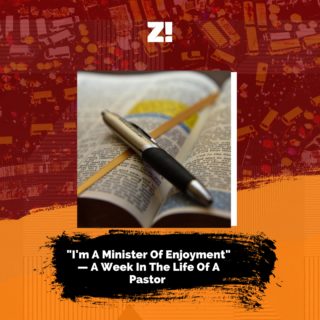What does it mean to be a man? Surely, it’s not one thing. It’s a series of little moments that add up.
“Man Like” is a weekly Zikoko series documenting these moments to see how it adds up. It’s a series for men by men, talking about men’s issues. We try to understand what it means to ‘be a man’ from the perspective of the subject of the week.
The subject for today is Fu’ad Lawal, head of content at Big Cabal. His definition of being a man revolves around duty, loss, and being a baby boy beyond what a tough exterior might suggest.
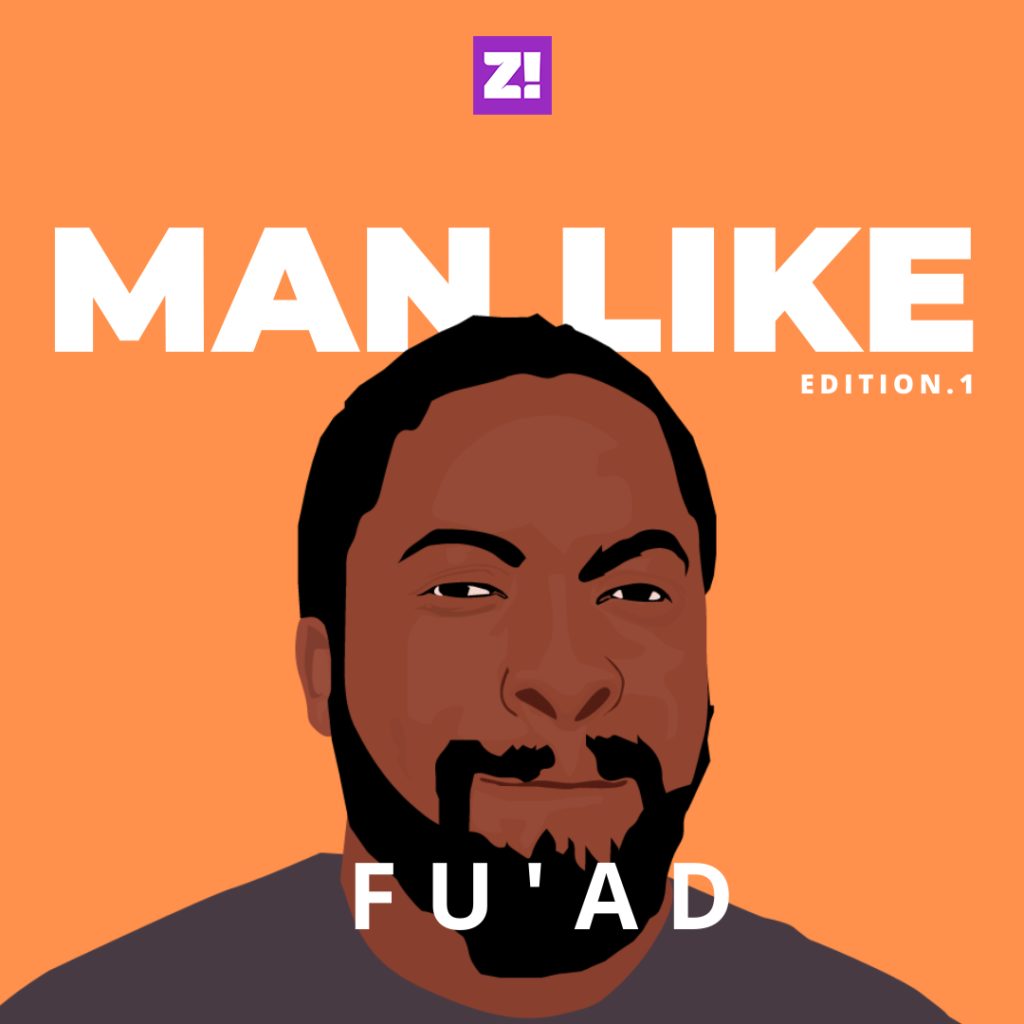
When did you first realise that you were a man?
I think the month after I clocked 20 – I remember because that was when my mum died.
There’s a 10-year gap between my brother and I. And since we were at different points in our lives, we weren’t on the same page. That meant, for me, that he didn’t empathise properly.
Before then, I didn’t do well with sharing my problems with anyone. Whenever I shared, it was with my mum. So, when she died, I just detached from everyone. What that meant was that I had to navigate the world on my own.
What came out of that incident is that I’m convinced that no matter what you throw at me, I’ll come out on the other side. I may be tired, but I’ll come out – you could also say that’s my toxic trait. I’ll always be thinking about how to crawl out. I just know that “guy, we go rugged am.”
That experience made me emotionally self-reliant to a sufficient degree.
What about your relationship with your dad?
I think my current relationship with my dad is duty, blood, and very little else.
My dad and I exist in very different worlds and I’m not sure I have the strength to bridge it, yet. The man is my guy, and that’s how I’ve always thought about him. Growing up, my mum was my soft place. She taught me songs, called my name endearingly, told me about books she read when she was my age. But when I compiled a list of books, my dad would turn the market upside down for it. He never came back empty-handed.
When I was a child, it was much different. The dynamic was like this: My dad buys a ball, my mum cuts it in half because I have broken something. Then my dad buys another one. My dad is very playful – still is – so whenever I needed liberty to play, I went to my dad.
My mum was the “disciplinarian’, but my dad was the person who just made things happen. Because I never really shared the same space with him as an adult, my relationship with my dad is just “guy man, guy man.’’
Have these experiences affected how you approach romantic relationships?
I like to view relationships like watching the premiership. If you watch a match in your living room, you’ll still enjoy it and the goals will slap. And I was perfectly fine with that.
But the thing about intimate relationships is that it’s like going to the viewing centre. For the experience to be complete, not just sufficient, you need the communal feeling. The first time that my self-reliance was tested was getting into a relationship and realising that I had to share things I didn’t even consider as problems.
In the beginning, it was this cycle of telling my partner problems, because I had to share. So, I’d share something that made me sad, then she’d get sad too. Back then, it was like, “this doesn’t solve anything”, “what are we doing here?” At one point, I was like it’s just better to chest it and find my answers because that’s how I’d been doing it since.
This is because I’m always looking for practical answers to my problems and if you don’t have a solution, bye-bye. However, I’ve had to learn that in a relationship whether or not there’s an answer, you have to share.
So, I started sharing because it was a relationship KPI. Over time, I realised that it helps with bonding. So, from sharing as performance, I’ve come a long way and now I just share without being asked. Even if there’s no solution, at least now she knows, and we share that. This whole thing is like a process, you’re never really fully made, whatever that is. Man, it humbles you.
Sounds like you’ve come a long way.
Let me burst your head.
Before my mum died, I had her diagnosis and medical report. So, I went to see my medical student friend. I was like “yo, this is what my mum has oh, what are her chances?” and she was like pray for a miracle. I couldn’t tell anyone, so I just prepared for the worst. I just wasn’t preparing for death.
Imagine my surprise when they called us that she was dead. I was thinking of a totally different conversation and definitely not one about death.
When you’re Muslim, the stages of grief come rapidly like whiplash because it’s required that you bury the body quickly.
Damn. I’m sorry.
It’s fine, that wasn’t much of a problem. The biggest flex about my mum was that she lived her life in service of other people. I think I draw a lot of my perspective from her. I draw a lot of my life’s purpose from her which is service. Her single biggest aspiration was to be useful to people. So, doing this is what gives me joy. My dad is like this too, even less judiciously, but my mum did it more purposefully.
I mean, it put her in the way of plenty of stress, trouble and that’s kind of the way I am. I also started writing because of her. When someone dies, everyone wants their clothes, their shoes, their bags as souvenirs – I didn’t care about those things.
I started writing because the writing was the one thing only both of us shared. She was very serious about journaling.
That’s heavy. What helps when you’re having a shitty day?
My own is food. Food is my only drug. My favourite food is the last food I ate. I don’t have a favourite food, I don’t pick. My own is that it should just slap.
To be honest, there are not a lot of things that are more therapeutic than 2 am Garri with milk and Milo – no sugar.
Also, I have an unwinding problem I’m trying to fix. Basically, relaxing indoors is difficult. My entertainment is tied to my laptop, and when I need to work, I also use my laptop. So, that means that the lines are constantly blurred. I’m trying to find ways to relax inside the house. But the beach is my happy place. Day. Night. I swim all the way out, or just float aimlessly.
30+ behaviour. What’s something you like to spend money on?
Well, I’d say gear. When I say gear, I like it faster, I like it stronger (sounds like a condom advert). I like gadgets because they give me more efficiency. Gadgets are my midterm expenses while food is my short term expense. I haven’t spent on anything lately though.
What’s the most ridiculous thing that has ever threatened your idea of what it means to be a man?
Haha. It didn’t bother me per se, I just felt unsafe. So, I have a big yansh and I went to a boys-only military-run school. There was a general idea there about boys with big yansh. So, I was very military with my yansh – do not touch my bum-bum. Now, I don’t even care. Na my yansh be this.
Apart from that, there’s nothing that makes me shrink per se. I didn’t have a period where it was actually a thing. Unless you’re counting primary school where I was a cry baby. But after I went to the boarding house and I came back after one term, I was something else. These days, a tear shed is a small victory. My secondary school beat all the tears out of me.
I learned a lot of new ‘conventions’ about manliness in Uni. Many arguments were strange to me. I guess it helped that in my house, it was a little different. I remember my dad always going to the market to buy pepper and meat because he said my mum couldn’t price for shit.
I also remember one of my aunts who was younger than my brother that stayed with us. One time, my mum made her in charge of things in the house and she made us beg for everything. The only place where anything was defined was in the kitchen, for the more ceremonial things like soups. Everybody’s first Eba in our house had koko because you made it yourself. My extended family is led by the firstborn, and the firstborns have been women for three generations. That’s what I grew up with.
Interesting. What do you think of the bro code?
I think that the bro code is about self-preservation, by way of brotherhood. It’s important for survival. A lot of the progress I made, figuring things out and navigating the grind was because of my friends, and in this context, the men. When shit went completely south, and even when I tried not to depend on them too much, they always came through. They still do.
My brother and I have a strong bond even though there’s a 10-year gap between us. When I was a kid and I did something wrong, he never snitched. And if he did something wrong, I also never snitched. He’d correct me but he’d never tell our parents because he didn’t want me to chop cane. As long as it wasn’t extreme.
It’s when the bro code becomes toxic to other people that it becomes a problem – for the people in it, and outside of it.
Someone said something that stuck with me: “he finds it difficult to trust a man that has never watched his life fall apart.”
My guys have been through it, and are going through it, but we have each other. Always.
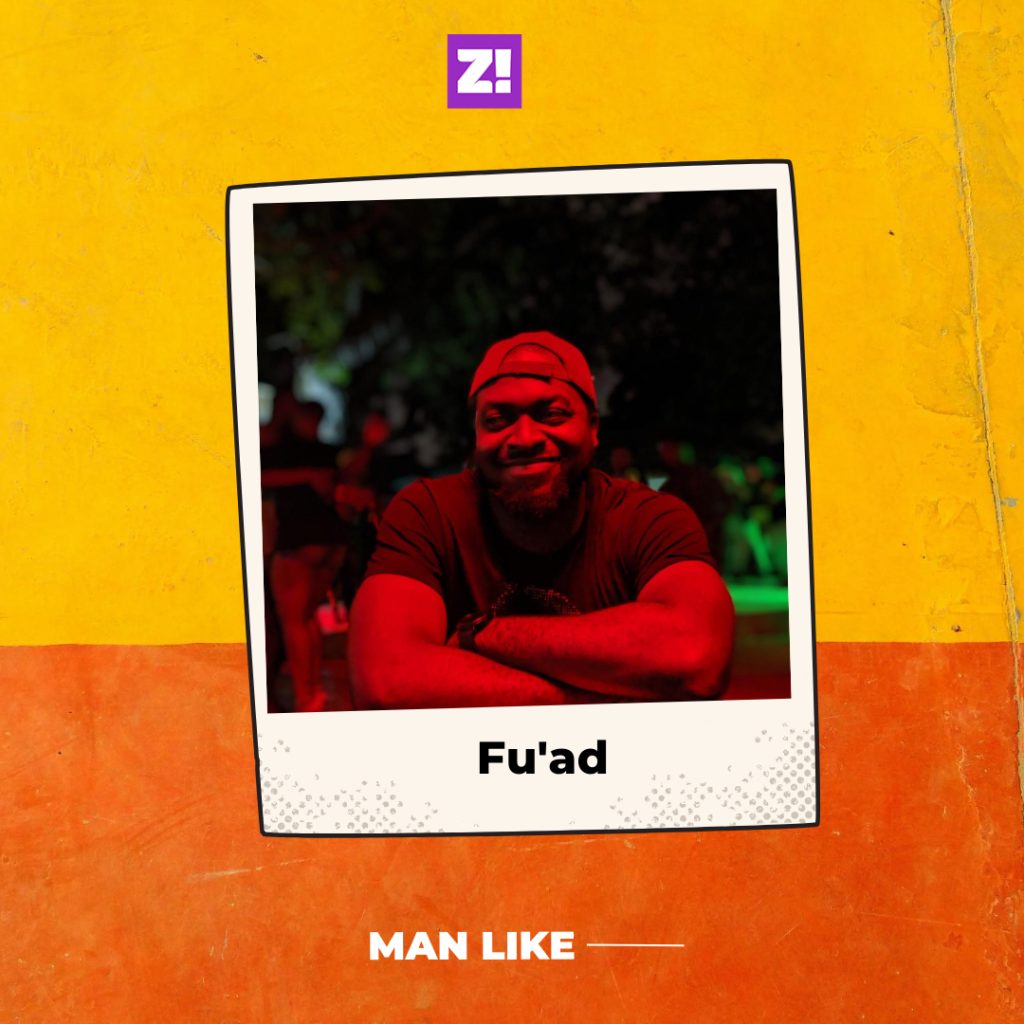
Damn. You said something about life falling apart. Do you have any experience with that?
Yes, I do. While that period is over, I still live with some residue from that time.
Oh, what’s that?
When we were young, people would say they wanted to buy cars, build houses. I didn’t have all those things, I still don’t have it.
Even now when I think about success, I think about it in the form of choice. Like I’d like to have the choice but nothing specific – I don’t have dreams of a fancy car or a grand house.
The only incentive I had to succeed as a teenager was that I just wanted to spoil my mum. Like boys would sit around in a circle and say what they wanted to do when they became rich, my own goal was to spoil my mum.
So, when I no longer had a mum, it was like someone put out the light in the solar system – everywhere just went dark. The first step to getting out of that place was trying to centre myself. By relying on myself first, no matter who leaves, I’ll still have me.
Many people assume that I’m a hard guy, but I’m just a soft baby boy, still.
Check back every Sunday by 12 pm for new stories in the “Man Like” series. If you’d like to be featured or you know anyone that would be perfect for this, kindly send an email.

